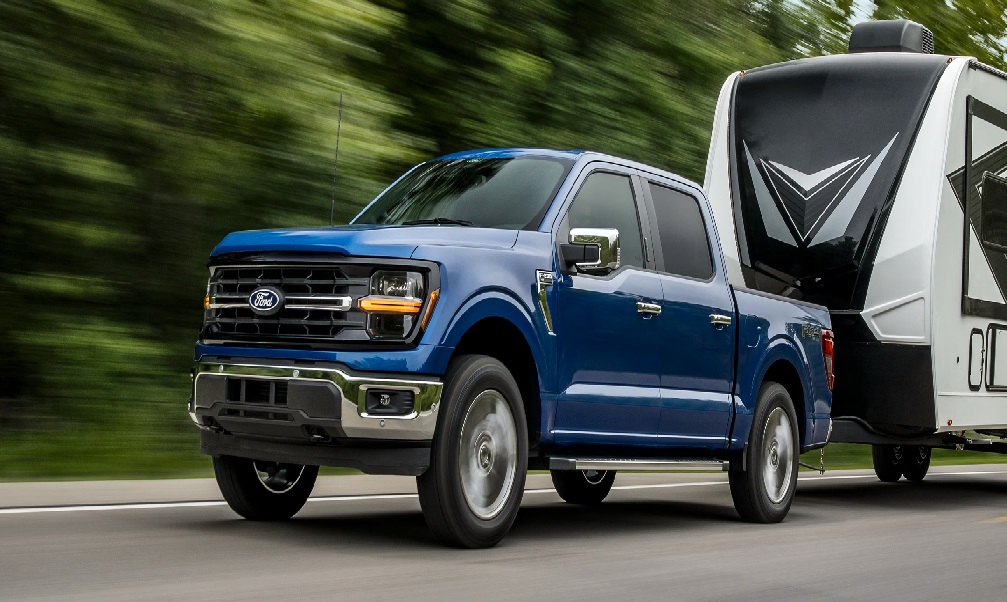As the automotive industry continues to evolve towards more sustainable and efficient technologies, hybrid and plug-in hybrid electric vehicles (PHEVs) have gained significant popularity. Ford, a pioneer in this field, has been at the forefront of developing innovative, environmentally friendly models. However, despite their growing adoption, many myths and misconceptions surround these vehicles.

Myth: Ford Hybrid and PHEV Vehicles Lack Power and Performance
One of the most persistent myths about these vehicles is that they lack power and performance compared to their conventional counterparts, which couldn’t be further from the truth, especially when it comes to Ford offerings.
The Reality:
- Eco-friendly powertrains often deliver instant torque, providing quick acceleration from a standstill.
- Many models, such as the Ford F-150 PowerBoost hybrid, offer impressive towing capacities that match or exceed their counterparts.
- The combination of electric and gasoline engines in Ford hybrid systems can provide more overall horsepower and torque than traditional engines alone.
For example, the 2024 Ford Explorer Hybrid boasts a combined output of 318 horsepower, demonstrating that this technology can deliver robust performance.
Myth: Hybrid Batteries Have a Short Lifespan and Are Expensive to Replace
Another common misconception is that electric batteries have a short lifespan and are prohibitively expensive to replace.
The Truth:
- Ford designs its electric batteries for longevity, with many lasting well over 160,000 kilometers.
- The company offers an 8-year/160,000 km warranty on electric batteries, showcasing their confidence in the technology.
- As EV technology has matured, replacement costs have decreased significantly.
- Many hybrid vehicles use lithium-ion batteries, known for their durability and longevity.
It’s worth noting that proper maintenance and driving habits can further extend the life of electric batteries, making them a reliable long-term investment.
Myth: Ford Hybrid and PHEV Vehicles Are More Expensive to Maintain
There’s a widespread belief that these vehicles are more expensive to maintain due to their complex systems.
The Facts:
- Ford hybrid vehicles often require less frequent maintenance than their conventional counterparts.
- Regenerative braking systems in these vehicles can reduce wear on brake pads, potentially lowering maintenance costs.
- Many components, such as the transmission fluid, often last longer in hybrid vehicles due to the reduced strain on the system.
While specialized knowledge may be required for some hybrid-specific components, overall maintenance costs are often comparable to or lower than those of conventional vehicles.
Myth: PHEVs Are Impractical for Long Trips
Some people believe that PHEVs are only suitable for short commutes and become impractical for long trips.
The Reality:
- Ford PHEVs, like the Escape PHEV, can operate in hybrid mode after the electric-only range is depleted, functioning like a conventional vehicle for extended trips.
- The ability to switch between electric and gasoline power provides flexibility for various driving scenarios.
- Many PHEV models offer impressive combined ranges, often exceeding 800 kilometers on a full tank and charge.
This versatility makes Ford PHEVs suitable for daily commutes and long-distance travel, offering the best of both worlds.
Myth: Charging a Ford PHEV Is Inconvenient and Time-Consuming
There’s a common misconception that charging a PHEV is a cumbersome process that takes too long.
The Truth:
- You can charge Ford PHEVs using standard household outlets, making home charging convenient.
- With a Level 2 charger, you can charge most PHEVs in about 3-4 hours.
- Public charging infrastructure has expanded significantly, making it easier to charge on the go.
- The FordPass app helps locate charging stations and manage charging schedules, enhancing convenience.
The flexibility to charge at home overnight or at work during the day makes PHEV ownership increasingly practical for many users.
Myth: Ford Hybrid and PHEV Vehicles Are Only Beneficial in City Driving
Some people believe that these vehicles only offer benefits in stop-and-go city traffic.
The Facts:
- While hybrid systems excel in city driving, they also offer benefits on highways.
- Ford hybrid powertrains provide efficient operation at various speeds.
- PHEVs can utilize their electric range for portions of highway driving, potentially increasing overall efficiency.
- Advanced aerodynamics and lightweight materials in hybrid models contribute to highway efficiency.
For instance, the Ford Fusion Hybrid has demonstrated impressive highway fuel economy, dispelling the myth that hybrids are only efficient in urban settings.
Myth: Ford Hybrid and PHEV Vehicles Are Not Environmentally Friendly to Produce
There’s a misconception that producing hybrid and PHEV vehicles negates their environmental benefits.
The Reality:
- Ford has made significant strides in sustainable manufacturing practices for all its vehicles, including hybrids and PHEVs.
- The company uses recycled and sustainable materials in its electric forward models.
- While battery production does have an environmental impact, the long-term benefits of reduced emissions often outweigh this initial cost.
- Ford is continuously working to improve the sustainability of its production processes and supply chain.
It’s important to consider the entire lifecycle of a vehicle when assessing its environmental impact, and Ford eco-friendly models generally offer a net positive effect over time.
Myth: Ford Hybrid Vehicles Are Not Safe in Accidents Due to Their Batteries
Some people worry that the presence of high-voltage batteries in electric forward vehicles makes them less safe in the event of an accident.
The Truth:
- Ford hybrid and PHEV models undergo rigorous safety testing, often achieving top safety ratings.
- These vehicles have advanced safety systems that automatically disconnect the high-voltage system in the event of a collision.
- The batteries in these vehicles are placed in reinforced compartments designed to withstand impact.
- Many Ford models, such as the Escape Hybrid, have received high marks in crash tests conducted by independent safety organizations.
The additional weight of the battery pack can sometimes contribute to improved vehicle stability and safety performance.
Myth: Hybrid and PHEV Technology Is Unreliable and Prone to Failures
There’s a perception that hybrid and PHEV technology is complex and, therefore, more likely to experience failures.
The Facts:
- Ford has been developing and refining its hybrid technology for over two decades, resulting in robust and reliable systems.
- Many hybrid models have demonstrated excellent reliability ratings in consumer reports and long-term studies.
- The simplicity of electric motors compared to internal combustion engines can lead to fewer mechanical issues in some components.
- Ford warranty coverage for hybrid-specific components provides additional peace of mind for owners.
It’s worth noting that, as with any vehicle, proper maintenance is key to ensuring long-term reliability and performance.
Myth: Ford Hybrid and PHEV Vehicles Don’t Offer Good Resale Value
Some people believe that eco-friendly vehicles depreciate faster than conventional vehicles.
The Reality:
- Many electric Ford models have demonstrated strong resale values, often comparable to or better than their non-electric counterparts.
- The increasing demand for fuel-efficient vehicles has positively impacted the resale value of these vehicles.
- The Ford reputation for quality and the proven longevity of their hybrid systems contribute to maintaining value over time.
- As the technology becomes more mainstream, consumer confidence in hybrid and PHEV models continues to grow, positively affecting resale values.
For example, the Ford Fusion Hybrid has consistently shown strong resale values, challenging the myth of poor depreciation for eco-friendly vehicles.
Embracing the Future of Automotive Technology
As we’ve explored in this article, many common myths surrounding hybrid and PHEV engine vehicles are based on outdated information or misconceptions. The reality is that Ford has made significant advancements in electric technology, offering powerful, reliable, efficient, and environmentally friendly vehicles.
From impressive performance capabilities to long-term cost savings and environmental benefits, Ford hybrid and PHEV models present compelling options for many drivers. As the automotive industry continues to evolve towards more sustainable technologies, it’s crucial to separate fact from fiction and make informed decisions based on current data and real-world performance.
Whether you’re considering a Ford hybrid for its fuel efficiency, a PHEV for its versatility, or simply curious about the technology, it’s clear that these vehicles have come a long way and continue to improve with each new model year. By debunking these myths, we hope to provide a clearer picture of what these vehicles truly offer, helping you make the best choice for your driving needs and environmental considerations.
As we look to the future, it’s evident that electric technologies will play an increasingly important role in the automotive landscape. The Ford commitment to innovation in this space ensures that its eco-friendly offerings will continue evolving, providing even more benefits to consumers and the environment.



